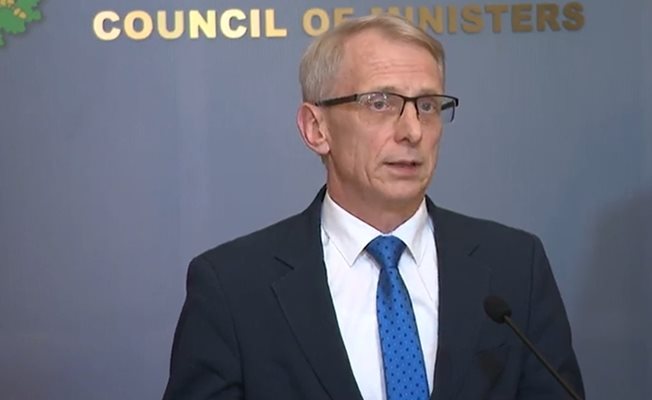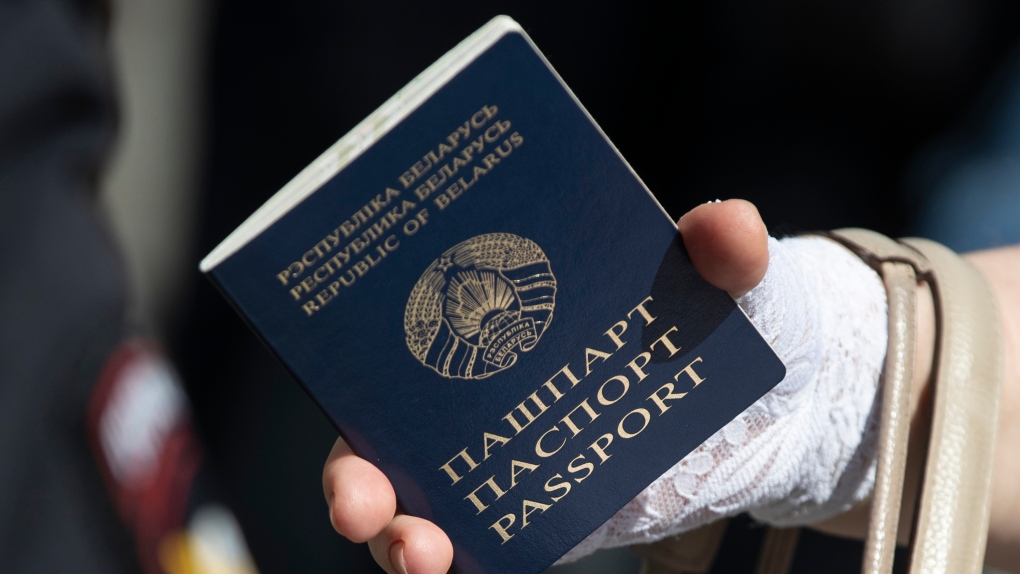In anticipation of World Mental Health Day, the World Health Organization (WHO) and the Office of the High Commissioner on Human Rights (OHCHR) have jointly introduced today a guidance titled “Guidance and Practice for Mental Health, Human Rights and Legislation.” The objective is to support countries in reforming their laws to eliminate human rights violations and improve access to quality mental health care.
Human rights abuses and coercive practices in Psychiatry
Instances of human rights abuses and coercive practices in the field of health care persist across the globe often supported by existing laws and policies. These include hospitalization and treatment of substandard living conditions, as well as physical, psychological and emotional mistreatment prevalent in numerous mental health services.
Although several countries have made efforts to revise their laws, policies and services since the adoption of the United Nations Convention on the Rights of Persons with Disabilities in 2006 only a limited number have taken measures to amend relevant legislation on a significant scale. This is required to put an end to these abuses and promote rights within mental health care.
Dr. Tedros Adhanom Ghebreyesus, Director General of WHO emphasizes that “Mental health is a component inseparable from the right to health.”
He also argues that this updated guidance will enable countries to make the changes in order to provide high-quality mental health care that promotes individuals’ recovery and respects their dignity. This empowers people with health conditions and psychosocial disabilities to lead fulfilling and healthy lives within their communities.
Volker Türk, the UN High Commissioner for Human Rights emphasizes the importance of transforming mental health services not only in terms of their reach but also in their core values ensuring that they truly align with the needs and dignity of each person. He states that this publication offers guidance on how a rights-based approach can facilitate the needed transformation within health systems.
Encouraging Effective Mental Health Care Based in Communities
The majority of government spending on mental health is allocated to psychiatric hospitals, particularly in high-income countries accounting for 43% of the budget. However, evidence shows that community-based care services are not only more accessible but also more cost-effective and efficient compared to institutional models of mental health care.
The guidance outlines the steps to accelerate the process of deinstitutionalization and establish a community-oriented approach to mental health care based on human rights principles. This includes implementing legislation that gradually replaces institutions with inclusive community support systems and mainstream services, like income support, housing assistance and peer support networks.
Putting an End to Abusive Practices
According to the participants of the launching event and all those who participated in the guidelines, it is crucial to put an end to coercive practices in mental health. These practices, like detention and forced treatment, seclusion and restraints, violate the right of individuals to make informed decisions about their own healthcare and treatment options.
Moreover, there is mounting evidence that shows the effects of these coercive practices on both physical and mental well-being. They worsen existing conditions and isolate individuals from their support networks.
The guidance suggests incorporating provisions that eliminate coercion in mental health services. It emphasizes the importance of establishing informed consent as the cornerstone of all mental health interventions. Additionally, it provides recommendations on how to handle cases within legal frameworks and policies without resorting to coercive measures.
Adopting a Rights-Based Approach to Mental Health
Recognizing that promoting health extends beyond just the healthcare sector this new guidance is targeted at legislators and policymakers involved in drafting, amending and implementing laws related to mental health. This includes legislation addressing issues such as poverty, inequality and discrimination.
The guidance also includes a checklist for countries to assess whether their health-related legislation aligns, with international human rights obligations. Furthermore, it highlights the significance of seeking advice from individuals who have experiences and the organizations that represent them as an essential part of this process. It also emphasizes the importance of education and raising awareness about rights-related matters.
While the guidance suggests a set of principles and provisions that can serve as a framework for legislation it recognizes that countries have the flexibility to adapt and tailor them according to their particular circumstances. This includes considering factors such as context, languages, cultural sensitivities, legal systems and more—all while upholding human rights standards.
On October 10th the World Health Organization (WHO) joined communities in observing World Mental Health Day 2023 under the theme “Mental health is a fundamental right, for all.”
Large and important list of Acknowledgements
The development and coordination of this Guidance was led by Michelle Funk and Natalie Drew Bold under the overall supervision of Dévora Kestel from the Department of Mental Health and Substance Use of the World Health Organization (WHO) jointly with the Economic, Social and Cultural Rights Section of the Office of the United Nations High Commissioner for Human Rights (OHCHR). Writing team This publication was written jointly by WHO and OHCHR. On behalf of WHO Alberto Vásquez Encalada (Consultant, Switzerland), Michelle Funk (Department of Mental Health and Substance Use, WHO) and Natalie Drew Bold (Department of Mental Health and Substance Use, WHO). On behalf of OHCHR Staff members of the Economic, Social and Cultural Rights Section. WHO and OHCHR would like to thank the following individuals and organizations for their valuable contributions, feedback and inputs: External contributors and reviewers Natalie Abrokwa (University of Groningen, Kingdom of the Netherlands), Nazish Arman (Shuchona Foundation, Bangladesh), Peter Bartlett (Centre for Mental Health and Human Rights, Institute of Mental Health, Nottingham University/WHO Collaborating Centre on Mental Health, Disability and Human Rights, United Kingdom of Great Britain and Northern Ireland), Shreya Bhardwaj (Charles University, Czech Republic), Valerie Bichelmeier (Make Mothers Matter, France), Joann Bond (Attorney General’s Chambers and the Ministry of Legal Affairs, Guyana), Mauro Giovanni Carta (University of Cagliari, Italy), Francesca Centola (Mental Health Europe, Belgium), Pyali Chatterjee (ICFAI University, India), Dixon Chibanda, (Friendship Bench and University of Zimbabwe, Zimbabwe), María Soledad Cisternas (former Special Envoy of the United Nations Secretary-General on Disability and Accessibility, Chile), Lee Allison Clark (Native Women’s Association of Canada, Canada), Jarrod Clyne (International Disability Alliance, Switzerland), Ria Mohammed-Davidson (Attorney at Law, Human Rights and Mental Health, Trinidad and Tobago), Maria de Lourdes Beldi de Alcântara (Universidade de São Paulo, Brazil), Eric Diaz Mella (Centro de Reorganimación Regional y Observatorio Social, Chile), Robert Dinerstein (American University Washington College of Law, the United States of America), Zuzana Durajová (Charles University, Czech Republic), Julian Eaton (CBM Global, the United Kingdom), Elisabetta Pascolo Fabrici (Azienda Sanitaria Universitaria Giuliano Isontina (ASUGI)/WHO Collaborating Centre for Research and Training in Mental Health, Italy), Alexandra Finch (Georgetown University, the United States), Leon Garcia (Centro and Hospital das Clínicas, Brazil), Neeraj Gill (Griffith University, Australia), Guilherme Gonçalves Duarte (Permanent Mission of Portugal in Geneva, Ministry of Foreign Affairs, Portugal), Piers Gooding (La Trobe Law School, Australia), Lawrence Gostin (O’Neill Institute for National and Global Health Law at Georgetown University Law Center, Georgetown University/WHO Collaborating Center for National and Global Health Law, the United States), Kristijan Grđan (Association for Psychological Support Croatia, Croatia, and Mental Health Europe, Belgium), Vivian Hemmelder (Mental Health Europe, Belgium), Edgar Hilario (Department of Health, Philippines), Torsten Hjelmar (Citizens Commission on Human Rights Europe, Denmark), Mushegh Hovsepyan (Disability Rights Agenda, Armenia), Dr Irmansyah (The National Research and Innovation Agency, Indonesia), Simon Njuguna Kahonge (Ministry of Health, Kenya), Olga Kalina (Georgian Network of (Ex)Users and Survivors of Psychiatry, Georgia, and the European Network of (Ex)Users and Survivors of Psychiatry (ENUSP), Denmark), Elizabeth Kamundia (Kenya National Commission on Human Rights, Kenya), Sylvester Katontoka (Mental Health Users Network of Zambia, Zambia), Brendan Kelly (Trinity College Dublin, Ireland), Hansuk Kim (Ministry of Health and Welfare, Republic of Korea), Seongsu Kim (Dawon Mental Health Clinic, Republic of Korea), Bernard Kuria (Ministry of Health, Kenya), Karilė Levickaitė (NGO Mental Health Perspectives, Lithuania, and Mental Health Europe, Belgium), Carlos Augusto de Mendonça Lima (World Psychiatric Association Section of Old Age Psychiatry, Switzerland), Laura Marchetti (Mental Health Europe, Belgium), Claudia Marinetti (Mental Health Europe, Belgium), Nemache Mawere (Ingutsheni Central Hospital, Zimbabwe), Felicia Mburu (Article 48 Initiative, Kenya), Roberto Mezzina (International Mental Health Collaborating Network and World Federation for Mental Health, Italy), Kendra Milne (Health Justice, Canada), Angelica Chiketa Mkorongo (Zimbabwe Obsessive Compulsive Disorder Trust, Zimbabwe), Guadalupe Morales Cano (Fundación Mundo Bipolar and European Network of (Ex)Users and Survivors of Psychiatry, Spain), Fabian Musoro (Ministry of Health, Zimbabwe), Macharia Njoroge (Championing for Community Inclusion in Kenya, Kenya), Nasri Omar (Ministry of Health, Kenya), Cheluchi Onyemelukwe-Onuobia (Babcock University, Nigeria), Hazel Othello (Ministry of Health, Trinidad and Tobago), Gemma Parojinog (Commission on Human Rights, Philippines), Soumitra Pathare (Indian Law Society, India), Eduardo Pinto da Silva (Ministry of Foreign Affairs, Portugal), Gerard Quinn (UN Special Rapporteur on the Rights of Persons with Disabilities, Ireland), Carlos Rios-Espinosa (Human Rights Watch, the United States), Gabriele Rocca (World Association for Psychosocial Rehabilitation and WAPR Human Rights Committee, Italy), Jean-Luc Roelandt (Service de recherche et de formation en santé mentale, Etablissement Public de Santé Mentale (EPSM) Lille Métropole/Centre collaborateur de l’OMS pour la Recherche et la Formation en Santé mentale, France), Marta Rondon (Instituto Nacional Materno Perinatal, Peru), Artur Sakunts (Helsinki Citizens’ Assembly – HCA Vanadzor, Armenia), San San Oo (Aung Clinic Mental Health Initiative, Myanmar), Liuska Sanna (Mental Health Europe, Belgium), Josep Maria Solé Chavero (Support-Girona Catalonia, Spain), Slađana Štrkalj Ivezić (University Psychiatric Hospital Vrapče, Croatia), Charlene Sunkel (Global Mental Health Peer Network, South Africa), Kate Swaffer (Dementia Alliance International, Australia), Bliss Christian Takyi (St. Joseph Catholic Hospital, Ghana), Murali Thyloth (Ramaiah Medical College and World Association for Psychosocial Rehabilitation, India), Emanuela Tollozhina (Ministry of Health and Social Protection, Albania), Helal Uddin Ahmed (Ministry of Health and Family Welfare, Bangladesh), Yannis Vardakastanis (International Disability Alliance, Switzerland), Javier Vasquez (American University Washington College of Law, the United States), Simon Vasseur-Bacle (Ministère de la Santé et de la Prevention, France; Service de recherche et de formation en santé mentale, Etablissement Public de Santé Mentale (EPSM) Lille Métropole/Centre collaborateur de l’OMS pour la Recherche et la Formation en Santé mentale, France), Alan Woodward (Lifeline International, Australia), Stephanie Wooley (European Network of (Ex-)Users and Survivors of Psychiatry, France), Miguel Xavier (Ministry of Health, Portugal), Peter Badimak Yaro (BasicNeeds Ghana, Ghana) and Martin Zinkler (Gesundheit Nord gGmbH – Klinikverbund Bremen, Germany).














